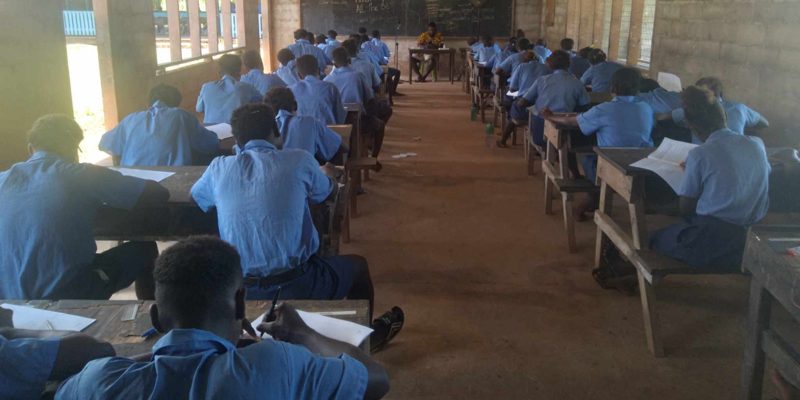THE high failure rate of students in schools right across the country have raised concerns amongst educators, parents, and community leaders and they attribute this to the erosion of teacher commitment, erosion of the education system and erosion of cultural values.
Speaking to Solomon Star, many parents highlighted issues within the teaching profession, including under-qualified educators and a lack of commitment to modern pedagogical practices.
Many argue that these shortcomings hinder students’ ability to excel academically.
“Some teachers are not adequately prepared for the demands of the classroom and this has a direct impact on students’ performance,” a concerned parent from the Western Province said.
“Without proper guidance and effective teaching methods, students are left struggling.
“Moreover, who knows whether all teachers are really teaching students or just attending to classes for the sake of getting paid,” the concerned parent said.
Eroded cultural values have also come under scrutiny for interfering with students’ focus and time for academic pursuits.
Growing urbanisation and changing lifestyle often demand students’ attention, pulling them away from their studies.
One of the parents in Gizo, Lyndon James expressed that the educational struggles students in the country are faced with pertain to living conditions, modern distractions and the erosion of cultural values.
Mr James recently spoke out about these issues and highlighted the importance of a collective response to improving the learning environment.
“With extended families living under the same roof, there is often no conducive environment for children and students to study effectively.
“In homes where parents, other students and siblings share space, combined with noisy neighborhoods, children frequently lose focus and become distracted from their studies,” he said.
Mr James also pointed to the increasing use of technology as a growing challenge.
“The rise of mobile smartphones is another major distraction for students, significantly affecting their performance. This issue is becoming more prevalent across the country,’’ he added
Mr James further highlighted how the erosion of cultural values has compounded the problem.
“In Solomon Islands, diminishing traditional practices such as communal living, respect for authority and strong family ties have historically played a critical role in shaping behavior, fostering discipline and building responsibility.
“As these cultural foundations fade, students may lose the guidance that supports learning,” he added.
According to Mr James, the lack of respect for education and motivation among students is tied to these shifting cultural dynamics, alongside modern distractions and inadequate teaching practices.
“When cultural values that embrace discipline and hard work erode, students are left without the foundational support they need to thrive academically,” he said.
Few teachers have also expressed that parents also have an important role in supporting their children in their education.
“They also have an important role to play in supporting their children in the school work, stationeries and paying their fees,” she said.
“If parents are busy with their daily markets, going out playing ludo and their work without supporting their children, it would also contribute to high failure rates,” she said.
Recent reports revealed that high-performing students who earned excellent marks were left out of their school results for this year. This was reportedly caused by teachers failing to submit research assignments on time, which account for 40 per-cent of the final grade.
The delay prevented many students from advancing to the next level of their education, denying them of the opportunity to excel in their education.
The Ministry of Education and Human Resource Development (MEHRD) has acknowledged these challenges and assured to take steps to address them comprehensively.
Proposed solutions include strengthening teacher training programmes and collaborating with community leaders to align cultural practices with academic schedules.
By ULUTAH GINA
Solomon Star, Gizo









